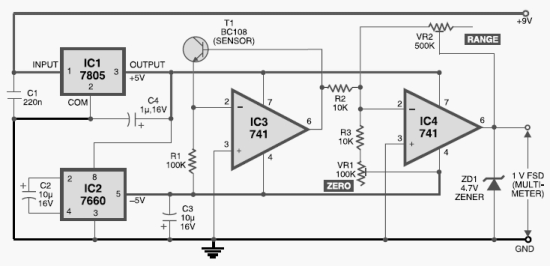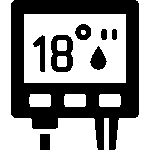Reliable Power Supply for Low Voltage Smart Thermometers

Smart thermometers are widely used in IoT applications, home automation, and industrial systems. But these devices are sensitive to power supply quality, especially when operating at low voltages (like 3.3V or 1.8V). An unstable or noisy supply can lead to incorrect readings, device resets, or sensor failure.
🔧 The Problem :
Low-voltage smart thermometers—such as those based on DS18B20 or LM75—require a clean and stable power source. If you power them directly from USB or a noisy buck converter without filtering, the sensor may behave erratically, especially in battery-powered or mobile applications.
✅ The Solution :
Use a low-dropout (LDO) voltage regulator or a well-filtered buck converter to deliver a clean, consistent voltage. Add decoupling capacitors (e.g., 0.1µF ceramic + 10µF electrolytic) close to the sensor’s VCC pin to reduce ripple and noise.
🔍 Practical Example :
Suppose you’re building a wireless thermometer with an ESP8266 and a DS18B20 sensor. Powering the DS18B20 directly from a Li-ion battery (3.7V) could damage it. Use an LDO like AMS1117-3.3 to safely drop voltage to 3.3V.
📏 Sample Calculation :
For 50mA load and 0.7V dropout on AMS1117:
Power dissipation = 0.7V × 0.05A = 0.035W (minimal, but keep airflow or heat sink in mind at higher loads).
🛒 Product Suggestion: Use Indian-Made Components for Reliability
Shop now at SmartXProKits.in — Support our work and India’s innovation—buy from our Make in India site!




















